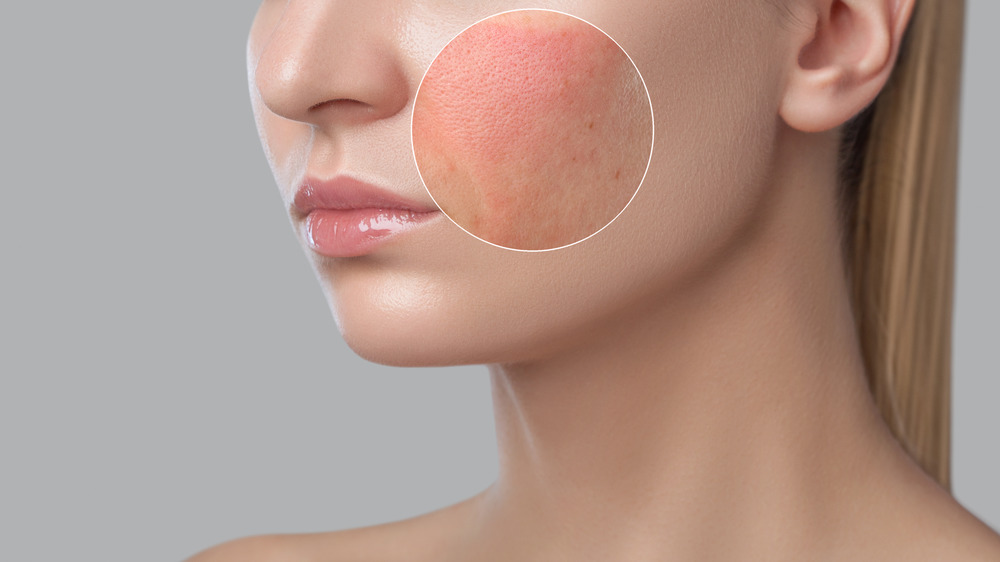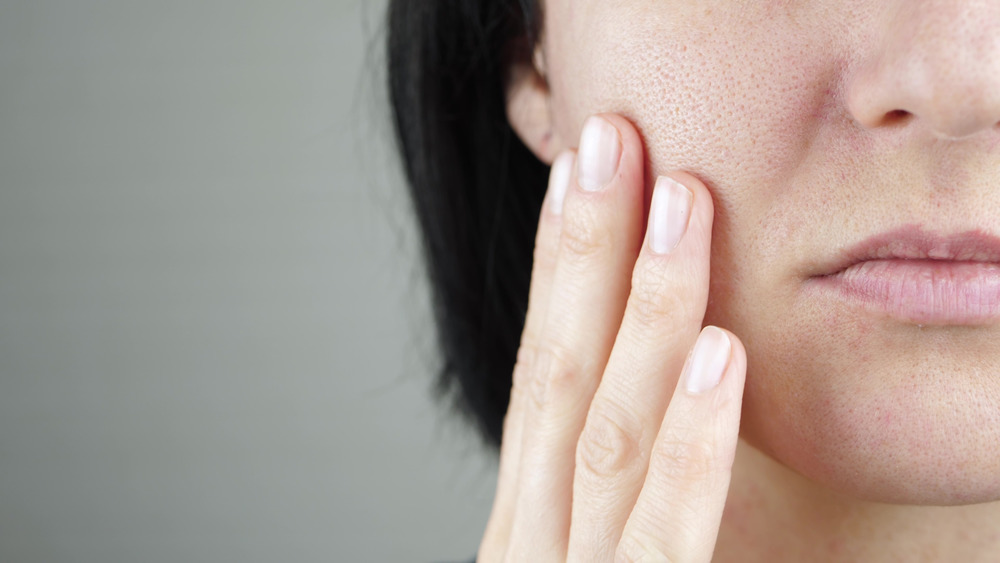Here's How You Can Have Rosacea And Not Even Know It
The American Academy of Dermatology Association defines rosacea as a skin condition that causes facial redness (across the nose and cheekbones). Rosacea may produce small, pus-filled bumps — and it can often be mistaken for acne or other skin problems (via the Mayo Clinic). "I often have patients complain of facial redness, not realizing they have rosacea," Brook Jeffy, a board-certified dermatologist in Phoenix, Arizona, tells The List.
According to Jeffy, rosacea comes in different forms, including erythematotelangiectatic rosacea, papulopustular rosacea, phymatous rosacea, and ocular rosacea. "Erythematotelangiectatic rosacea is a form of rosacea where the skin may flush easily or have fixed background redness and broken blood vessels," Jeffy explains. "There is another form of rosacea, papulopustular rosacea, where acne-like bumps occur. These patients will often think they have acne and start treating it as such, but they actually have rosacea and really sensitive skin, and these acne treatments are way too harsh for them and make the situation worse by irritating the skin."
Rosacea can mimic more than just acne
You may be asking yourself: How could I have a skin condition and not know it? But the truth is, rosacea presents similar signs and symptoms of a variety of skin conditions, not just acne. These include dermatitis and psoriasis (via Medical News Today).
What's more, Elizabeth Farhat, a board-certified dermatologist with Allina Health tells The List: "The first stage of rosacea includes flushing in the face — meaning your skin becomes red. To you, it may seem like you're red from too much sun, a good workout, a change in temperature or stress. This could go on for years without you realizing that you have rosacea."
What's worse? Farhat says most patients are oblivious until the condition has reached its third stage. Once the patient has reached stage three, they are at the inflammatory stage," Farhat says. "Please don't ignore those red, raised areas of bumps on your face. You don't want the condition to spread to your eyes, cause ocular rosacea, and impair your vision."

